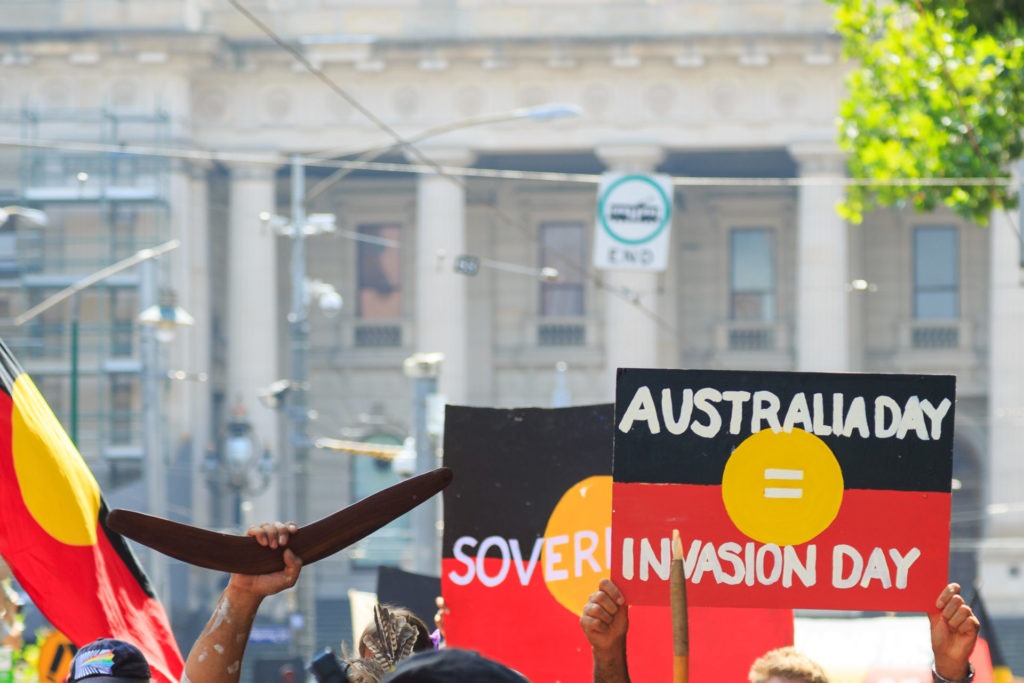This time last year, at nine months pregnant, I was told by my midwife to book in for an elective caesarean.
My excitement about finally meeting my baby (and partially deflating) was through the roof, but I was also adamant about something: “Please don’t make me have him on Australia Day”, I pleaded with her.
This position might seem extreme, but for me, it’s black and white. On January 26, I am not proud to be an Australian.
I’ve felt like this for many years, but in recent times my position has solidified. Callously celebrating a day that causes deep hurt for many of our countrymen and women is beyond comprehension.
Each year, we are made aware of this pain. Hundreds of our First Nations people have spoken out about this topic. From political leaders, to entertainers, educationalists, athletes and the list goes on.
It’s not hard to understand why. January 26 marks the anniversary of Captain Arthur Phillip steering a fleet of British ships into NSW’s Port Jackson in 1788. It’s a date which only commemorates the loss of sovereignty for Indigenous people, the loss of lives and the loss of their country.
And, in countless ways, these wrongs are still yet to be corrected. That’s a big part of this whole debate.
January 26 doesn’t just signify an isolated moment in history. It signifies the deep, excruciating and enduring plight of Indigenous Australians.
It signifies hundreds of years of white rule and cultural degradation. It signifies ongoing racism, including a policy (not so long ago) which saw Aboriginal and Torres Strait Islander children snatched from the arms of their mothers and whisked away to white missions in a bid to wipe out the race.
It signifies being categorised as “animals” and not gaining the right to vote until as late as 1962. It signifies diabolic rates of incarceration and deaths in custody. It signifies a life expectancy 8 years less than non-Indigenous Australians and the injustice and humiliation of still not holding constitutional recognition.
There is so much work to do and bridges to cross before we reach true reconciliation. And January 26 is a perennial reminder that we are still light years away.
‘We’re all in this together’
2020 was a pivotal year, and one in which Australians truly came together and presented a united resolve. We supported each other through lockdown and emerged world-leaders in a fight against COVID. Our Prime Minister, on many occasions, emphasised this point and on New Year’s Day celebrated this by changing the lyrics of our anthem to “we are one and free”.
In a statement, Morrison said he hoped the move would help propel the “spirit of unity” after a challenging year.
It was a good move.
But if we truly subscribe to this mode of thinking– of empathy and compassion and unification– we must draw a line in the sand when it comes to Australia Day.
Because the equation really is as simple as this: There is not a single non-Indigenous person in Australia who would feel deep pain if the date of our national day was to be changed, but there are scores of people who do, from having this maintained.


